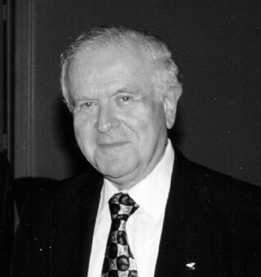S. Fred Singer
S. Fred Singer
Siegfried Frederick Singer (born September 27, 1924 in Vienna) is an American atmospheric physicist. Singer is Professor Emeritus of environmental science at the University of Virginia, specializing in planetary science, global warming, ozone depletion, and other global environmental issues. Singer received a B.E.E from Ohio State University in 1943; an A.M. in physics from Princeton in 1944; and a Ph. D in physics from Princeton in 1948. Singer has received an honorary Doctorate of Science from Ohio State University in 1970.
Singer invented the backscatter photometer ozone-monitoring instrument for early versions of US weather satellites Singer was Director of the Science and Environmental Policy Project, Washington Institute for Values in Public Policy, Chief Scientist, United States Department of Transportation from 1987 to 1989, Deputy Assistant Administrator for the United States Environmental Protection Agency from 1970 to 1971, and the first Director of the National Weather Bureau's Satellite Service Center, where upon his leave he received a Gold Medal for Distinguished Federal Service. In 1964, he became the first dean of the School of Environmental and Planetary Sciences at the University of Miami.
Singer has also been a consultant to the House Select Committee on Space, NASA, GAO, NSF, AEC, NRC, DOD (Strategic Defense Initiative), US DOE Nuclear Waste Panel, the US Treasury, and the state governments of Virginia, Alaska, and Pennsylvania, and to various industries including GE, Ford, GM, Exxon, Shell, Sun Oil, Lockheed Martin and IBM.
In the 1950s, Singer was Director of the Center for Atmospheric and Space Physics at the University of Maryland, College Park.
Singer is skeptical of scientific findings on human-induced global warming, the connection between CFCs and ozone depletion, and the link between second hand smoke and lung cancer. Singer has also worked with organizations with similar views, such as the Independent Institute, the American Council on Science and Health, Frontiers of Freedom, the Marshall Institute, the National Center for Policy Analysis, and the Science & Environmental Policy Project, which Singer founded.
